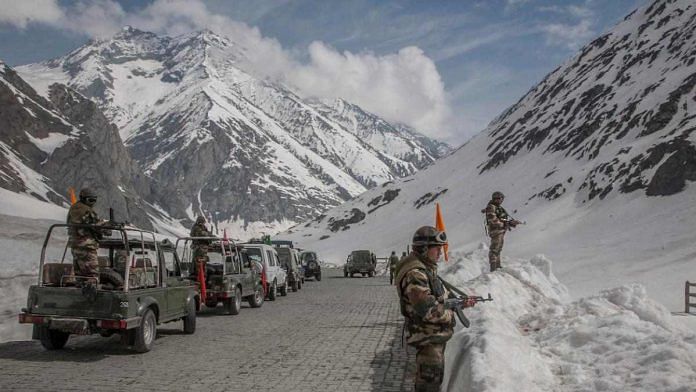New Delhi: External Affairs Minister S. Jaishankar spoke to his Chinese counterpart and State Councilor Wang Yi Thursday and discussed the implementation of the “Moscow Agreement” on easing of tensions in Ladakh.
“Spoke to State Councilor & Foreign Minister Wang Yi this afternoon. Discussed the implementation of our Moscow Agreement and reviewed the status of disengagement,” Jaishankar said in a tweet, referring to their discussions in Moscow in September 2020 on the sidelines of the Shanghai Cooperation Organisation (SCO) foreign ministers’ meeting.
Spoke to State Councilor & Foreign Minister Wang Yi this afternoon. Discussed the implementation of our Moscow Agreement and reviewed the status of disengagement.
— Dr. S. Jaishankar (@DrSJaishankar) February 25, 2021
This is the first time that the term ‘Moscow Agreement’ has been used by the Ministry of External Affairs (MEA), hinting at the role played by Russia in reducing tensions between New Delhi and Beijing.
After the meeting between Jaishankar and Wang in Moscow, India and China had issued their first joint statement since the beginning of the stand off in Ladakh in April-May last year. The statement outlined a five-point agenda on easing tensions.
During the meeting, Jaishankar and Wang had also discussed expediting work on a new set of confidence-building measures (CBMs) once the stand off is defused. Their interaction followed another meeting between the Indian and Chinese defence ministers — Rajnath Singh and Wei Fenghe, respectively — in Russia.
Last week, during his visit to Moscow, Foreign Secretary Harsh V. Shringla also underlined the role played by Russia in defusing tensions between India and China. New Delhi and Beijing, he said, feel “comfortable” discussing difficult matters in Russia.
Jaishankar and Wang’s conversation Thursday came days after Indian and Chinese troops successfully disengaged at the Pangong Tso in Ladakh. On 20 February, India and China held their 10th round of corps commanders meeting.
Discussions are currently underway between the Asian giants for resolution of the stand off at other friction points — Depsang Plains, Gogra Post, Hot Springs and Demchok.
Also read: How India stood its ground and forced China to end Pangong Tso aggression
‘No change in India’s LAC’
At the latest corps commanders’ meeting, the MEA said Thursday, both sides had a “candid and in-depth exchange of views” on the remaining issues along the Line of Actual Control (LAC) in the Western sector.
“Both sides view the smooth and successful completion of disengagement in the North and South Bank (of Pangong Tso) as a significant first step as this forms a basis for resolution of remaining issues so as to achieve the eventual goal of complete disengagement in all friction areas,” MEA Spokesperson Anurag Srivastava said. “The two sides have agreed to work towards a mutually acceptable resolution of the remaining issues.”
Reiterating Defence Minister Rajnath Singh’s statement this month in Parliament about the disengagement at Pangong Tso, Srivastava said “mutual disengagement should not be misinterpreted … There is absolutely no change with respect to India’s LAC”.
Also read: China recognises India’s growing role in South Asia but won’t give it the ‘global power’ tag




For as fraught a relationship as India’s had become with China last year, sometimes a third chair at the table – although what Russia would have offered would be good offices, not mediation – can be invaluable.